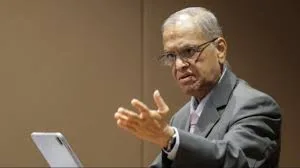In a landmark ruling that has sent shockwaves across South Asia, Bangladesh’s International Crimes Tribunal sentenced former Prime Minister Sheikh Hasina to death on November 17, 2025, for crimes against humanity related to the violent suppression of student-led protests in 2024. The 78-year-old leader, currently in exile in India, was tried in absentia and found guilty of inciting hundreds of extrajudicial killings.
Interim leader Muhammad Yunus called the verdict “historic” and urged citizens to remain “calm, restrained, and responsible” as Bangladesh navigates this politically charged moment ahead of February 2026 elections.
Table of Contents
Sheikh Hasina’s Verdict Overview: Key Details
| Aspect | Details |
|---|---|
| Defendant | Sheikh Hasina (78), Former PM |
| Charges | Crimes against humanity |
| Sentence | Death penalty |
| Trial Status | In absentia (India exile) |
| Casualties | Up to 1,400 killed, 25,000 injured |
| Co-accused | Ex-Home Minister Asaduzzaman Khan (death), Ex-Police Chief Al-Mamun (5 years) |
| Court | International Crimes Tribunal, Dhaka |
What Led to This Historic Judgment?
The three-judge panel ruled that Hasina was responsible for inciting hundreds of extrajudicial killings carried out by law enforcement during the student protests that ultimately toppled her 15-year government in August 2024. Secret phone recordings revealed that Hasina “issued an open order” to “use lethal weapons” on protesters and shoot “wherever they find them”.

The tribunal heard testimony from 54 witnesses over 28 working days, examining a massive 8,747-page evidence file. Judge Golam Mortuza Mozumder declared: “We have decided to inflict her with only one sentence—that is, sentence of death”, after initially considering life imprisonment but determining the death penalty was warranted given the severity of crimes.
Learn more about international justice systems on TechnoSports.
International Response and Legal Challenges
Former Indian diplomat Ashok Sajjanhar expressed skepticism about the verdict’s foundation, stating to news agency ANI that it appears to be on “shaky grounds” and lacks concrete evidence proving 110% involvement—a standard typically required for death sentences.
Hasina’s lawyers submitted an appeal to the United Nations Special Rapporteur on extrajudicial, summary or arbitrary executions over “serious concerns about the lack of fair trial rights and due process”. The former PM has called the tribunal a “kangaroo court” and refused to recognize its authority.
Bangladesh has formally requested Hasina’s extradition from India, but New Delhi has remained silent on the matter, according to CNN’s reporting.

Security Heightened Amid Political Tensions
The interim government deployed soldiers, paramilitary border guards, and police across Dhaka and other parts of the country, with almost half of Dhaka’s 34,000 police on duty. Nearly 50 arson attacks and dozens of crude bomb explosions have been reported nationwide over the past week, killing two people.
Hasina’s Awami League party called for a nationwide shutdown to protest the verdict, raising fears of escalating violence ahead of the February elections from which the party has been barred.
Explore comprehensive political analysis on TechnoSports.
What Happens Next?
Hasina cannot appeal the verdict unless she is arrested or surrenders to authorities, with appeals required within 30 days and final disposition expected within 60 days. Her son, Sajeeb Wazed, stated they would not appeal unless a democratically elected government including the Awami League takes office.
The verdict marks a dramatic turning point in Bangladesh’s political landscape, with implications extending far beyond its borders as the nation prepares for crucial elections in early 2026.
FAQs
What were the specific charges against Sheikh Hasina in the Bangladesh tribunal?
Sheikh Hasina faced five charges related to crimes against humanity, primarily focusing on incitement of murder, ordering protesters to be killed, and authorizing the use of lethal weapons, drones, and helicopters to suppress the July-August 2024 student uprising. The tribunal found her guilty on three of the five charges, specifically for inciting violence, ordering killings, and failing to take action against atrocities. Prosecutors presented evidence including secret phone recordings where Hasina allegedly issued open orders to use lethal force against protesters. The UN reported up to 1,400 deaths during the crackdown.
Can Sheikh Hasina appeal the death sentence from India?
No, Sheikh Hasina cannot appeal the death sentence while remaining in exile in India. According to Bangladeshi law, a convict must be physically arrested or voluntarily surrender to authorities to qualify for filing an appeal in the Supreme Court. The appeal must be lodged within 30 days of the verdict, and the Appellate Division must dispose of it within 60 days. Bangladesh has formally requested her extradition from India, but New Delhi has not responded to the request. Her son, Sajeeb Wazed, stated they would not appeal unless a democratically elected government with Awami League participation takes office.








